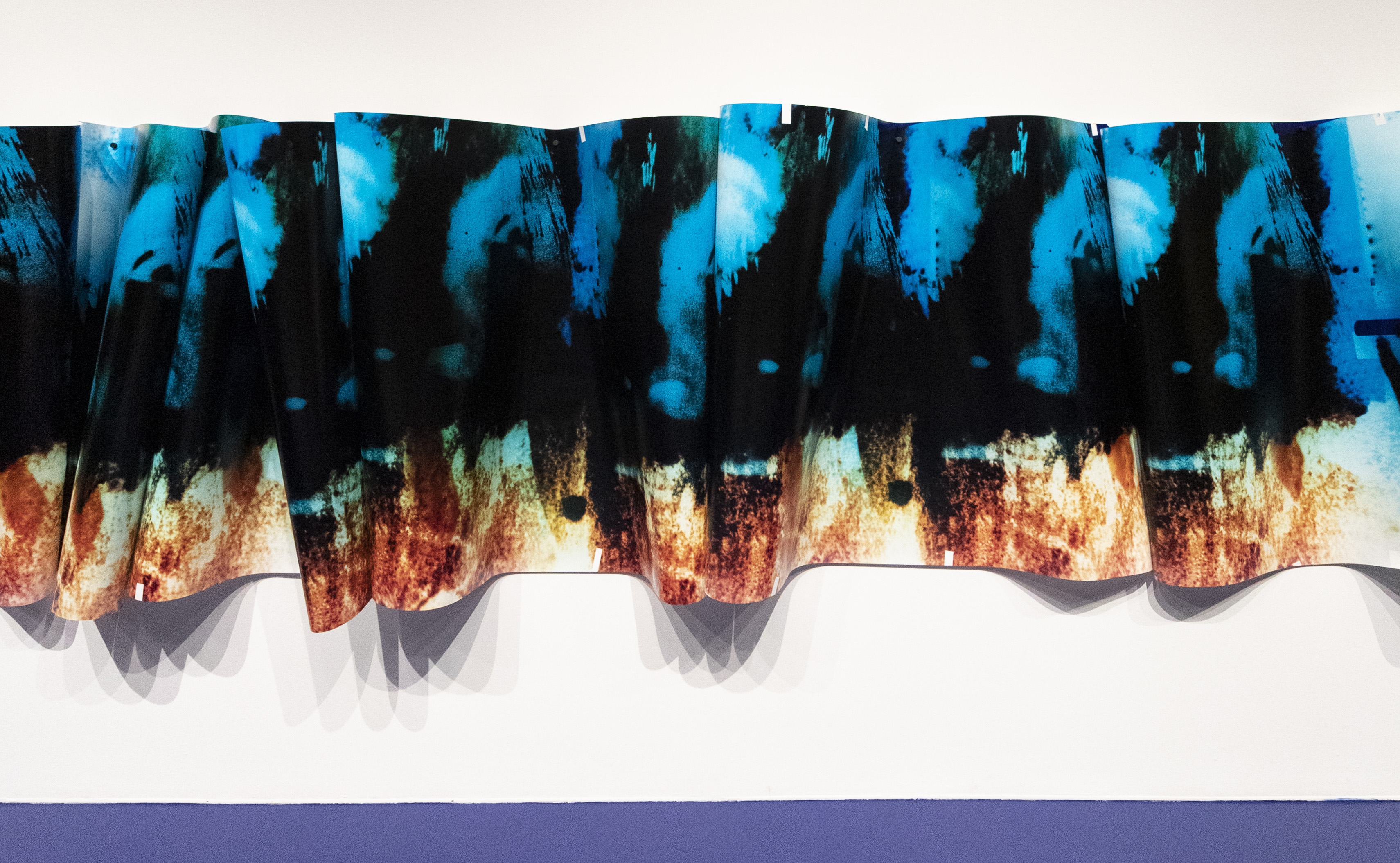There's a question that has really been on the minds of many who follow the unfolding stories of Power Book II: Ghost – a question that, you know, has sparked quite a bit of conversation and speculation. It centers around whether Monet, a significant figure in that world, might have been responsible for the passing of Carrie Milgram. This particular query has, in a way, become a very central point of discussion, prompting folks to look back at the events and try to piece together what really went down.
The narrative, you see, is full of intense relationships and high-stakes situations, so it's not entirely surprising that such a dramatic event would lead to so much wondering. Carrie, a professor at Stansfield University, found herself caught in a rather complicated web, and her sudden exit from the scene has left many pondering the exact circumstances. It's almost as if every new detail just adds another layer to the already intricate story, making it a bit challenging to sort out the truth.
We're going to take a closer look at the threads connecting these two characters, exploring the reasons why some believe Monet was involved and what the provided information suggests about the whole situation. It's about pulling apart the different pieces of the puzzle to get a clearer picture of what transpired and, you know, why this particular event continues to hold such a strong grip on people's thoughts.
- Wendi Mclendon Covey
- Mgk Music Genre
- Peace Of Mind Boston Lyrics
- What Is North Dakota Known For
- Kristen Stewart Birth Time
Table of Contents
- Who is Carrie Milgram and Her Connection to Monet?
- Was Carrie Milgram's Death Tied to Monet?
- Understanding Dissociative Identity Disorder (DID) - A Look at the Condition
- The Aftermath - Fallout and Suspicions
- What Happened After Carrie's Passing?
Who is Carrie Milgram and Her Connection to Monet?
Caridad "Carrie" Milgram, as we know, was a character who played a supporting role in the Power Book II universe, a sort of opposing force in the storyline. She held a position as a professor at Stansfield University, which, you know, placed her in a unique spot within the unfolding events. Her personal life, it turns out, included a struggle with what's described as a sex addiction, adding another layer to her rather complex character.
The connection between Carrie and Monet, in some respects, grew quite tense. Monet, a major character in her own right and the wife of Lorenzo Tejada, managed a significant part of their family's operations. It was a situation where, apparently, Monet felt Carrie's continued presence would, as she put it, "mess up" her relationship with Zeke. This particular feeling, you know, created a very strong point of contention between them, laying the groundwork for some serious trouble.
It's interesting to consider how their paths crossed and what led to such a direct confrontation. Carrie, as a university figure, seemed to represent a different world than Monet's, yet their lives became deeply entangled. This clash of worlds, really, is what often makes these stories so compelling, showing how personal relationships can get caught up in larger, more dangerous schemes.
- Alexander Skarsg%C3%A5rd Family Tree
- Sean Payton New Wife
- Kyle From Love Is Blind
- Asap Rocky Hood
- Ocean Dock
Personal Details - Carrie Milgram
| Full Name | Caridad "Carrie" Milgram |
| Role | Supporting antagonist |
| Occupation | Stansfield University Professor |
| Personal Struggle | Sex addiction |
Was Carrie Milgram's Death Tied to Monet?
The question of whether Carrie Milgram's passing was directly linked to Monet is, you know, a pretty big one that has been discussed quite a bit. There's a strong sense, based on what we're told, that Monet played a very direct part in it. The idea that Monet might have ended Carrie's life comes from a very specific moment where Monet herself expressed a clear intent, suggesting that Carrie being alive would cause problems for her connection with Zeke. This, apparently, led many to believe that Monet was indeed the one responsible for Carrie's unfortunate end.
It's not just a passing thought; there's a definite current of suspicion that Monet was behind what was later presented as Carrie Milgram's alleged suicide. Detective Whitman, for example, seemed quite convinced that Monet was involved. This kind of conviction, you know, usually comes from some form of evidence or strong intuition, pointing a finger directly at Monet as the person responsible for the situation. The way the story unfolds, it really keeps this possibility at the forefront of everyone's mind.
The narrative also suggests that if Monet was indeed the one who brought Carrie's life to a close, the circumstances surrounding Carrie's life, which was described as being "destroyed," might have made it easier for the blame not to fall back on Monet. This implies a level of calculated action, where the perpetrator might have used Carrie's personal struggles to cover their tracks, making it seem like a different kind of tragedy. It's a rather chilling thought, honestly, how things can be manipulated.
What Motivations Might Monet Have Had to Kill Carrie?
When we think about why Monet might have wanted to, you know, bring about Carrie's demise, several potential reasons come to mind, all rooted in the complex dynamics of their world. One possibility is that it was about getting back at someone, a sort of payback. There's also the idea of intense envy, a feeling that someone else has something you want, or is in a position you desire. But perhaps the most straightforward reason, and a very common one in these kinds of stories, is that Carrie was simply in the way of something Monet wanted to achieve.
Monet, as we've heard, was extremely protective of Zeke. This fierce protectiveness, you know, is a very defining trait of hers. The notion that Carrie's continued existence would "mess up" Monet's relationship with Zeke is a powerful motivator. It suggests that Carrie posed a significant threat to a connection Monet valued deeply, making her a target. It's almost like a protective animal, really, acting to remove anything that might endanger its young.
We've seen Monet act decisively before, taking lives when she felt it was necessary. Her actions, typically, are rooted in a kind of strategic thinking, a very cold calculation. However, the decision regarding Carrie, it's suggested, might have been more emotional, less about pure intelligence and more about raw feeling. This distinction, you know, hints at a depth of personal investment that made the situation particularly volatile for Monet, possibly leading her to act on impulse rather than just careful planning.
Did Monet's Actions Directly Lead to Carrie's End?
The directness of Monet's involvement in Carrie's passing is, you know, a very central point of discussion. There's a strong indication that Monet did indeed make good on her implied threat. The text mentions that Monet had, in a way, told Carrie that her being alive would significantly complicate her connection with Zeke, creating a very clear motive for action. This kind of direct warning, you know, often precedes a very definitive outcome in these sorts of narratives.
The belief that Monet was the one who brought Carrie's life to an end is quite prevalent. It's not just a vague suspicion; it's a specific accusation that is repeatedly brought up. The very fact that Carrie's life was, as described, "destroyed" is suggested to have made it easier for the responsibility of her passing not to be directly traced back to Monet. This implies a situation where the circumstances of Carrie's life were used to mask the true nature of her death, making it appear as something other than a direct act by Monet.
There's also the context of Monet's other actions. We know, for example, that Monet delivered on her promise to end Mecca's life. This shows a pattern of someone who, when they make a commitment to such a severe act, usually follows through. While this is about a different individual, it does, you know, paint a picture of a character who is capable of taking decisive and fatal action when she feels it's necessary to achieve her aims. This pattern, arguably, lends weight to the idea that she would also act on her threat against Carrie.
Understanding Dissociative Identity Disorder (DID) - A Look at the Condition
While our main focus here is on the question of whether Monet brought about Carrie's end, it's worth taking a moment to consider another topic that appears in the provided text: Dissociative Identity Disorder, or DID. This is, you know, a mental health condition that involves a person having two or more distinct identities, or separate personalities, which can take control of the individual at different times. It's a rather complex condition, and, you know, it can be a way for someone to, in a sense, escape from very difficult or negative experiences they've gone through.
DID is often described as a rare condition, and it's also considered one of the most misunderstood psychiatric disorders out there. It's very important, apparently, to clear up any wrong ideas about it by using solid research. Doing this helps to spread a better grasp of the condition and, you know, helps to lessen the negative feelings or judgments people might have about it. Most individuals who experience DID have, unfortunately, gone through severe and repeated traumatic events during their childhood, like physical or sexual mistreatment, not getting enough emotional care, or living in a very troubled home environment.
The condition is linked with some pretty serious behavioral health signs. Before 1994, it was actually known by a different name: multiple personality disorder. The most recognizable sign of DID is when a person's identity is, you know, involuntarily split into at least two separate personality states. The good news is that DID is a treatable condition once it's correctly identified. Professionals who understand the signs of DID can make a diagnosis during a conversation with the person, and there are also, apparently, some paper and pencil tests that can help in the process.
How Did Carrie's Story Intersect with DID?
It's important to note that while the provided text offers a detailed description of Dissociative Identity Disorder (DID), it doesn't, you know, explicitly state how Carrie Milgram's personal story might have directly connected with this particular condition. The information about DID is presented as general knowledge about the disorder itself, its characteristics, and its background. So, in terms of the text we're working with, there isn't a direct link made between Carrie's experiences or her character and the symptoms or causes of DID.
However, the presence of information about DID in the same body of text that discusses Carrie Milgram's fate could, in a way, invite readers to consider broader themes of mental health and trauma within the narrative. While we can't assume Carrie herself had DID based on the given details, the inclusion of such a topic might suggest that the story, in general, touches upon the complex ways individuals cope with severe experiences. It's almost like, you know, putting two different pieces of information side-by-side and letting the audience ponder if there's a deeper, unstated connection.
The text about DID emphasizes that it's a way for people to escape from negative experiences, and that it's often linked to severe childhood trauma, including abuse and neglect. While this is general information about DID, it does, in some respects, highlight the kind of intense personal struggles that characters in complex dramas often face. So, while Carrie's specific connection to DID isn't detailed, the broader discussion of mental health conditions in the source material, you know, does add a certain depth to the overall context of the story.
The Aftermath - Fallout and Suspicions
Following Carrie's passing, the fallout was, you know, pretty immediate and far-reaching, particularly for Monet. The question quickly arose about whether Monet would face legal consequences for what happened to Carrie Milgram. Officer Whitman, for instance, became very convinced that Monet was indeed the person responsible for Carrie Milgram's alleged suicide. This kind of strong belief from a law enforcement figure, you know, usually means a lot of pressure and scrutiny for the person suspected.
The suspicion surrounding Monet was not just a fleeting thought; it was a persistent line of inquiry. Whitman, it seems, was dead set on proving that Monet had not only caused Carrie Milgram's death but also any other crimes he could, you know, think of. This indicates a very focused and intense investigation aimed squarely at Monet. It's almost as if, once the suspicion landed on her, every other event or misdeed was also considered to be potentially linked to her actions.
The broader question among those following the story was whether the "Carrie kill" would, you know, eventually come back to haunt Monet. This kind of lingering doubt and public speculation suggests that even if there wasn't immediate legal action, the shadow of Carrie's death would continue to follow Monet. It's a common theme in these narratives, really, where past actions, even if unproven, have a way of affecting a character's future and reputation.
What Were the Repercussions for Monet Regarding Carrie's Fate?
The immediate repercussions for Monet concerning Carrie's fate were, you know, primarily in the form of intense police scrutiny. Officer Whitman, as mentioned, was absolutely convinced that Monet was behind Carrie Milgram's alleged suicide. This conviction led him to focus his efforts on Monet, making her a very central figure in his investigation. He even, apparently, showed Zeke a traffic camera photo of Monet that was taken just a few blocks from Carrie's apartment, and this photo, you know, fit within the coroner's estimated time of death. This piece of evidence, really, put Monet in a very tight spot.
However, the story takes a turn that, in a way, prevented immediate legal charges from sticking to Monet for Carrie's death. Whitman, who was so intent on bringing Monet down for Carrie's passing and other alleged crimes, was himself shot and killed, described as being "in self" defense. This event, you know, effectively removed the primary investigator who was actively pursuing Monet for Carrie's death, altering the course of the investigation significantly. It's almost as if the very person trying to prove Monet's guilt was suddenly out of the picture.
Despite the removal of Whitman, the question of Monet's involvement in Carrie's death, and whether it would eventually catch up to her, continued to linger among the audience. The narrative suggests that Monet's actions, including her promise to end Mecca's life, overshadowed other family issues, like Cane messing up the family business. This implies that the major, life-altering events, like the suspicion around Carrie's death, had a way of dominating the storyline and, you know, keeping Monet at the center of the intense drama.
What Happened After Carrie's Passing?
After Carrie Milgram's passing, the story really continued to unfold with a series of dramatic events and, you know, shifts in the power dynamics. The immediate aftermath saw Officer Whitman's intense focus on Monet as the prime suspect in Carrie's alleged suicide. This particular pursuit, you know, became a very significant part of the narrative, with Whitman even presenting photographic evidence that seemed to place Monet near Carrie's apartment around the time of her death. It was a very strong attempt to link Monet directly to the event.
However, as we've discussed, Whitman himself met an untimely end, which was described as being "in self" defense. This event, in a way, removed the most zealous investigator from Monet's trail regarding Carrie's death. It's almost as if the direct threat of legal action related to Carrie's passing was, you know, temporarily lifted from Monet, allowing the plot to move in other directions. This kind of development, really, keeps the audience on their toes, never quite knowing what will happen next.
The narrative then shifted to other major events, including Zeke's big revelation and Monet being exposed for her relationship with Dante. These developments, you know, pretty much overshadowed other family dramas, like Cane's mistakes in the family business. It seems that the more dramatic and high-stakes events, such as the suspicions surrounding Carrie's death and other major character revelations, tend to dominate the storyline. This kind of intense focus on the most impactful events is, you know, a very typical way these complex narratives keep their audience engaged, always wondering what big secret or action will be revealed next.
- Tolu And Chris Perfect Match
- Ross Butler Movies And Tv Shows
- Clark County Family Court Clerk
- Where Is Tylar Witt Today
- Tolu Perfect Match



